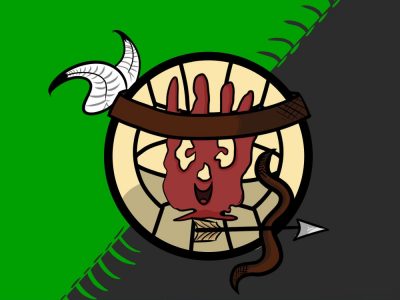In this current “Peak TV” era we’re all living through, I feel that everything I watch is appointment viewing. Every so often, though, I try to buck this trend and intentionally surf through movie channels on TV to find something random.
This weekend that film ended up being the Tom Hanks classic, “Cast Away.”
For those who haven’t seen it or haven’t been acquainted with it through the cries of “WILSON!!!” you hear every time a volleyball is near, I’ll briefly explain the movie’s plot.
Tom Hanks plays a neurotically dedicated FedEx executive who needs to take a work trip to Malaysia via a company cargo plane. Mid-flight, the plane travels through a rough storm, the pilots lose control of the aircraft, and it plummets into the Pacific Ocean. Tom Hanks is the only survivor of the crash and takes up residence on a remote island in the middle of the ocean.
The rest of the movie deals with his trials and tribulations of living on the island and — spoiler alert — his eventual rescue by a cargo ship, after which he shares an awkward kiss with the, now remarried, love of his life in what used to be his garage.
This wasn’t the first time I had seen “Cast Away,” but this particular rewatch had me feeling differently about Hanks’ experience on the island. Somewhere between him spear-fishing and making fire for the first time, I thought, “Man, this looks like a lot of fun.”
Which, I think, is not what you’re supposed to get from watching it.
There was just something about Hanks’ lifestyle that attracted me. Maybe it was that he had no obligations, he didn’t have to decide what to wear every morning, he had no problems in personal relationships and he never had to find a charger for his phone.
He just walked around this island, stabbed fish in the water and then cooked them over a fire.
In my research to uncover whether or not I fell victim to a psychotic episode, I found out that the “Cast Away” lifestyle I was yearning for was actually a somewhat widely held desire.
While wandering around the interweb in hopes of finding some academic validation for my sudden desire to walk around barefoot and build lean-tos all day, I stumbled upon anarcho-primitivism.
Anarcho-primitivism is a radical wing of political thought that argues that for the good of the planet and the good of society, we must return to a pre-industrial society. This kind of thinking fueled the villain origin story of Ted Kaczynski, a.k.a. the Unabomber, whose anarcho-primitivist ideas led him to start mailing bombs to people.

Think of the anarcho-primitivists like the Amish, but if the Amish were feral and scary.
In a 2014 interview with Gizmodo, John Zerzan, a philosopher and follower of the “anprim,” as some call it — gospel — expressed his desire for an anarchist primitive society saying, “I want to see mass society radically decentralized into face-to-face communities. Only then can the individual be both responsible and autonomous.”
In the same interview, Zerzan also said that, “Every symbolic dimension — time, language, art, number — is a mediation between ourselves and reality. We lived more directly, immediately before these dimensions arrived.”
In the past few years, the idea of anprim has sprouted an entire genre of memes. According to the meme encyclopedia “Know Your Meme,” anprim “has been subject to memes and jokes, specifically exaggerating its anti-technology leanings and focusing on its adherents’ interest in hunter-gatherer lifestyles.”
While these memes are — on the surface — attacking the ludicrous idea of throwing away all modern technologies and returning to a hunter-gatherer society, I think they reflect at least some concern about the stresses of modern life.
In a world where social media and the internet dominate our lives, the idea of becoming deserted on a remote uninhabited South Pacific island becomes appealing.
If the internet were to go away, I think we might be better off. It would surely take some adjusting, but once the dust settled we’d probably be happier.
What this whole odyssey has taught me is that while anprim’s followers may be — for lack of a better term — wackjobs, the life they intend to lead may help to find true happiness. And that’s a good thing. As long as they don’t decide they need to violently push the world into pre-industrial darkness.






















































































































